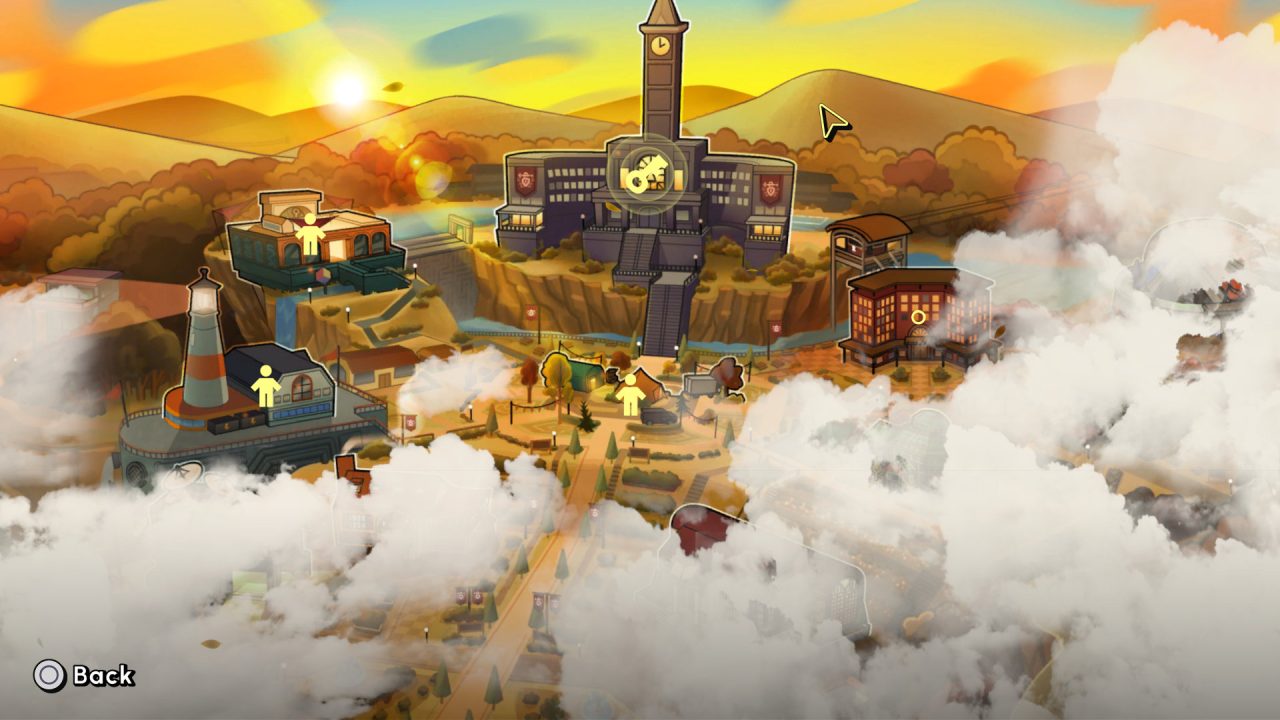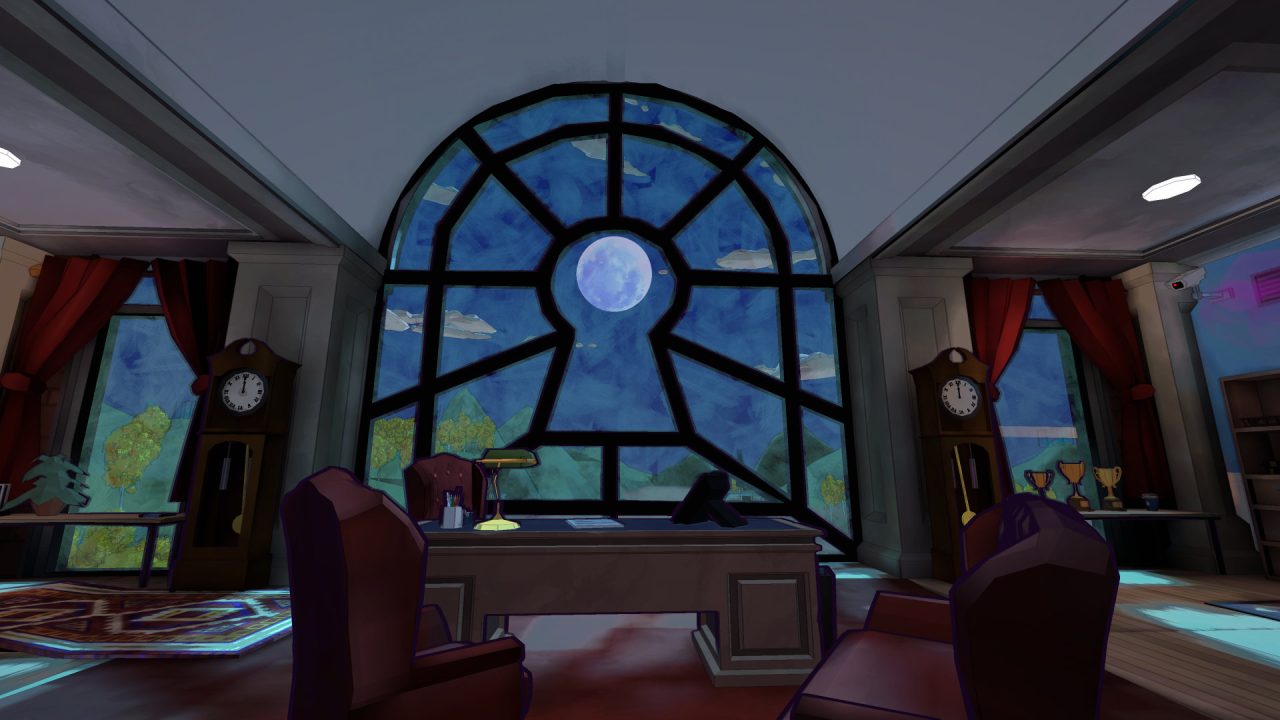A story-driven escape-room game could take several forms: cackling supervillain, macabre ontological mystery, failing inner city business — you name it! Here, we get a secret university with a Layton-esque obsession with escape rooms. Need help with the piping system? Why not race against the clock as the water rises with the threat of drowning? Want to help in the kitchen? Sure, drink this poisoned milkshake. Campus life is simply batty. But do the characters and plot bring this niche puzzle-style game to life, or is the real escape room completing Escape Academy?
Being new students at the academy, you and a friend are just looking for a good time at a derelict-appearing business on the street. After being essentially taken hostage, you become cadets at the aforementioned death trap of a university. If this sounds absurd and over-the-top, it is, which would normally be fine if the writing is clever and humorous.
But it isn’t.
Technically, the writing isn’t bad. Clearly, someone with a good grasp of the English language wrote it or had someone competent proofread it, but the plot, characters, and jokes are all tame and devoid of depth. Honestly, Escape Academy might be intended for a much younger age, like early adolescence. I don’t mean this with any disrespect, of course, just that maybe I’m not the right demographic, and that’s okay. Still, would-be purchasers should know what they’re getting into.

Expect almost no agency aside from the order in which different escape rooms are tackled, which is to say that they all have to be done eventually, anyway. Campus life in Escape Academy is light-hearted, with zany professors and an antagonistic rival who hates you because reasons. No branching storylines or even dialogue from the central protagonist, though. Everything is on-rails with predictable story beats and random drama with no foreshadowing or transition.
Okay, the story technically exists, but what about the game itself? What would an escape room be without a friend to take with you? The game features local and online co-op, so I dabbled with my sibling in local co-op, and the controls are mostly there, aside from an odd inventory-based glitch. While we were both trying to interact with the first-person world, my mouse and keyboard-controlled cursor froze in the middle of the screen several times, forcing me to back out of what I was looking at and re-enter. Not a huge hassle, and if this were a more cutthroat game, I would have grievances, but it’s an annoyance in a game already lacking polish. Besides that, the game controls fine in the 3D environment and everything flows seamlessly.
As one might expect, puzzles abound in each escape room. One of the core features of escape rooms is not only the number of puzzles but the complexity and unique nature of each puzzle. If you’re going to use a cipher, make it interesting. Powers of observation are paramount in most escape rooms, and logic, of course, is critical to success. Does Escape Academy check these boxes?

No, not really, but that’s not necessarily bad. While finding yet another code can be a labored task, how players earn the code can be creative and engaging, and even when it’s not, the layout and delivery of the code are typically fun enough. Although the story lacks depth, each escape room has a degree of personality that makes even simple puzzles a joy to solve. The enjoyment is likely buoyed by bringing a friend and making the experience more interactive, but regardless, we had a good time. Was it a rousing time? No, but we were entertained.
One note I should make: these are not the escape rooms you and I know and love that are increasingly popular in the real world. Of course, the lack of physical interaction makes a difference — being a video game impacts the delivery — but the actual layout and larger-than-life scenarios make them feel more like generic puzzle rooms than “escape rooms” in the traditional sense despite the fact that the protagonists are, in fact, escaping. I include this detail, not as a negative, but merely to clarify that Escape Academy is more an assortment of puzzle rooms. Strangely enough, the only medium I’ve found able to most authentically capable of simulating an escape room is board games.

Graphically, the art is fine and the 3D environment doesn’t look bad, but it doesn’t look good, either. In today’s gaming landscape, I expect more polish and style. I enjoyed that the central protagonists’ room has ever-expanding decorations pulled straight from each escape room completed, and I smirked while poking around the place to see what assets were pulled after each set of puzzles. Audibly, I can’t say Escape Academy does much. The music is completely forgettable, and the script lacks voice acting.
Escape Academy is far from a stellar title, but it’s enjoyable if appreciated for what it is. The creators have released a “road map” for future updates and DLC, which is always nice to see. Would-be purchasers may take heart in knowing that there’s more life to be injected if escape room puzzle solving evokes an interest. As for me, I’ll quietly look forward to these updates, but I’m in no way chomping at the bit.


